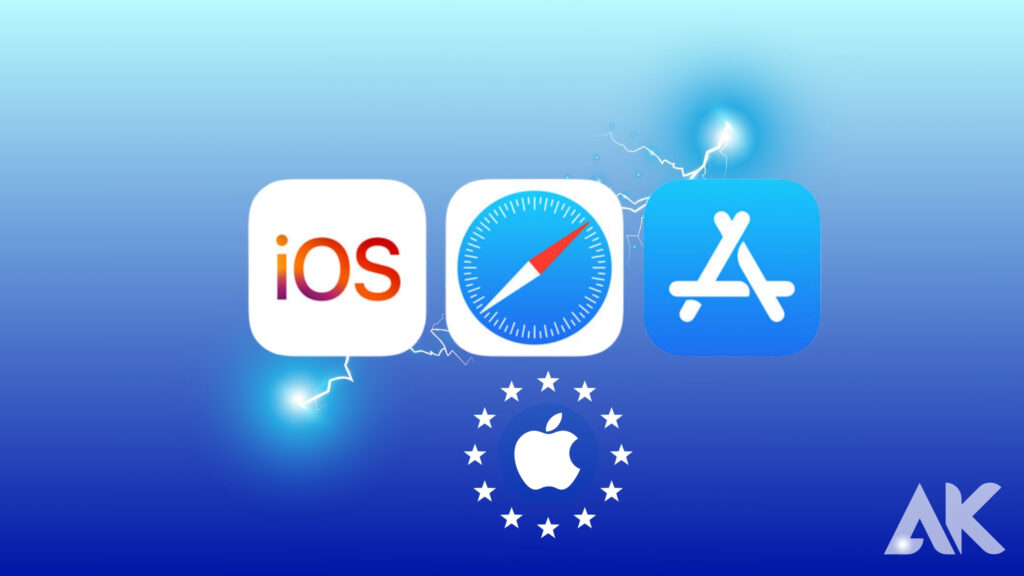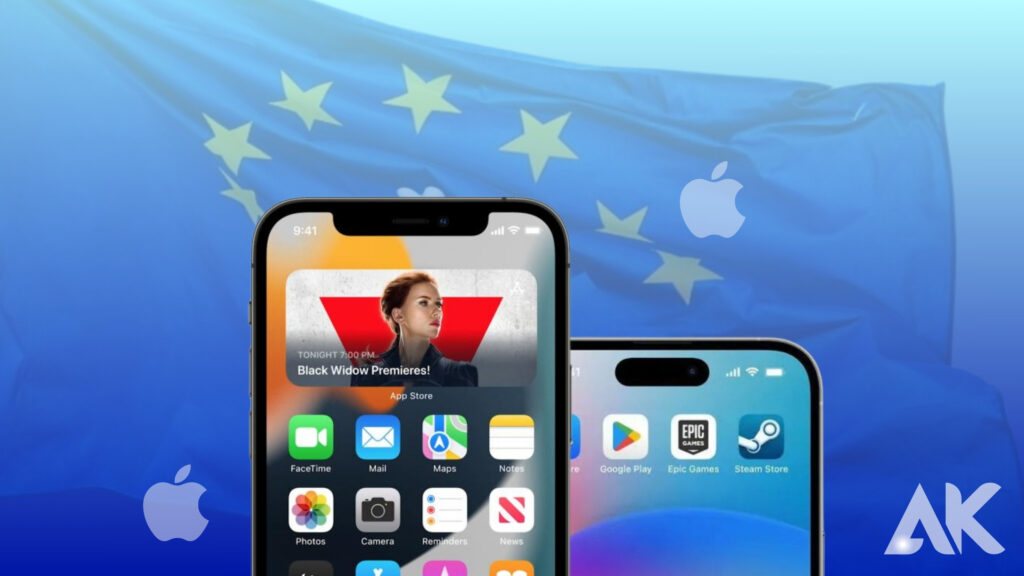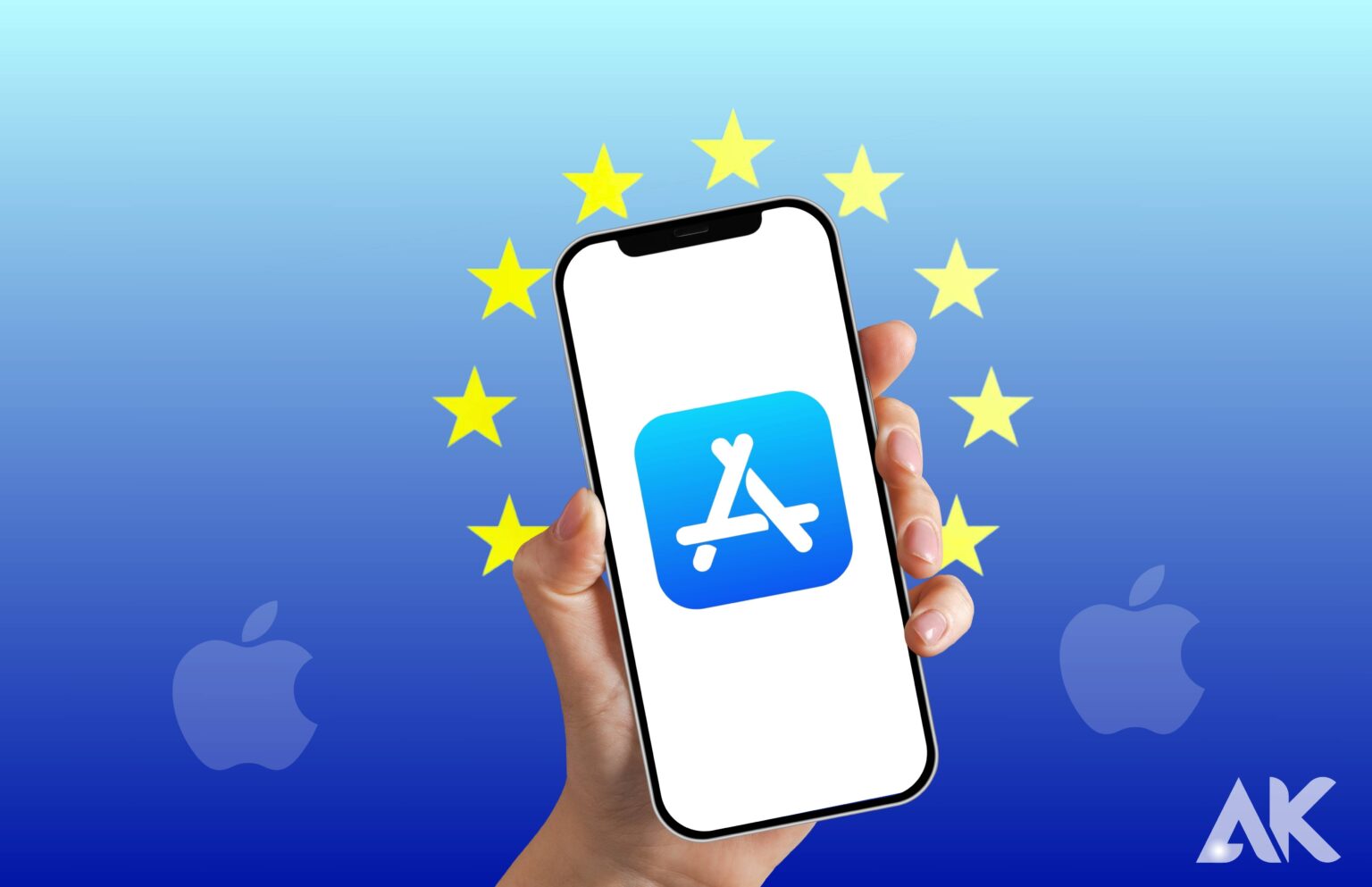Changes made by Apple to its EU App Store not long ago have caused waves in the digital world, which is constantly changing due to technological advancements. Users need to stay educated about these changes so they can navigate the digital landscape easily. If you’re confused about the implications of Apple’s updates to the EU App Store, this detailed explanation will help you make sense of it all.
Apple Changes App Store, Safari, and iOS Features in the EU

Apple (AAPL) announced on Thursday that it will be updating the App Store, Safari, and iOS for iPhones in the EU to meet the requirements of a new regulation called the Digital Markets Act (DMA), which is set to take effect in March.
To encourage competition, customer choice, and innovation, the European Commission designated Apple as a “gatekeeper” under the Digital Markets Act (DMA), which regulates large tech businesses. The DMA mandates, among other things, that gatekeepers like Apple permit third parties to interact with specific parts of their systems in specific cases, including the App Store and Apple Pay.
The iPhone maker’s systems will be available to developers on Thursday through a beta version and to customers in March, according to Apple. The improvements will make iOS, Safari, and the App Store compatible with the DMA.
If gatekeepers like Apple don’t follow the DMA’s rules by March 6, 2024, they can be fined as much as 10% of their yearly global turnover.
According to Apple Fellow Phil Schiller, “the changes we’re announcing today comply with the Digital Markets Act’s requirements in the European Union.” App developers can now find information about new terms and tools for alternative app distribution and payment processing, as well as new capabilities for alternative browser engines and contactless payments. More importantly, developers are free to opt out of any changes to the current business conditions if they so desire.
Apple stock ended Thursday at $194.17 a share, down 0.2% from the previous trading day, although it was up over 34% year-over-year.
Apple’s Major App Store Changes For Europe

To bring iOS and the company’s policies in line with the new EU Digital Markets Act (DMA), which allows third parties access to many of Apple’s extremely restricted practices, Apple has today announced a slew of modifications that will be implemented shortly.
Just so we’re clear, none of this will affect your Australian iPhone. However, now that the EU regulation is out in the open, regulators around the world, including the Australian government, will likely examine its details and consider ways to implement it for their benefit. The ACCC is already addressing similar issues on behalf of Australian users.
“Apple has less ability to address other risks, including apps that contain scams, fraud, and abuse, or that expose users to illicit, objectionable, or harmful content,” Apple said in response to reports that the company is unhappy with the changes.
Additionally, apps that use browser engines other than Apple’s WebKit might have a significant negative impact on the user experience, system speed, and battery life.
They have put a lot of personal, careful consideration into the modifications.
For a long time, Apple’s 30% cut in in-app sales has been the most contentious developer policy. Smaller developers with lower revenue were allowed to pay half that when this was amended a few years ago, but the large players were still extremely angry about it.
Unfortunately, many were under the false impression that requiring Apple to allow “third-party marketplaces” would result in commission-free sales. Still, Apple insists that all apps be “notarized,” which translates to tagging, testing, and basic compliance checks. Additionally, after one million software downloads, you will be required to pay 50 euros for each download as a “core technology” cost. This fee is essentially Apple’s way of saying “thank you” for creating the platform that you are using.
Even Fortnite’s developers, Epic Games, will probably not approve of this. Unfortunately, each download of their “free” game will cost them fifty cents.
These new “App Stores,” or software marketplaces, as Apple is referring to them, will be available for download via developer websites in the EU. Just like with any app, the user will receive clear messages and approvals for permission, but Apple is concerned that this could compromise device security and privacy.
The elderly regulators attempting to project an image of freedom and openness and the multi-millionaires developing these massive apps have neglected one crucial area: parental controls.
When it comes to parental controls, Apple products are among the most comprehensive and user-friendly on the market. By utilizing Family Sharing, parents can not only see their children’s activity but also, and maybe most crucially, set time limits for specific apps and thoroughly review app installations. This is known as “Ask to Buy,” and EFTM is aware that these third-party markets will virtually avoid the Family Sharing and Ask to Buy processes in the EU due to the new legislation.
This implies that your adolescent (or anybody else using Family Sharing on an iPhone) can download any program from a developer website, agree to all the permissions, and then download it—all without the specified parent or guardian ever knowing.
The principle is sound, similar to the superb General Data Protection Regulation (GDPR), sometimes known as the “Cookie Law” in the European Union. Again, the goal is good: to give developers more freedom while reducing Apple’s control and costs.
The problem is that no one pays any attention to the cookie pop-ups; we all simply click “I agree” without thinking about it.
While this DMA legislation aims to improve the system, its reputation will be built on the worst possible consequences.
Conclusion
Apple has announced changes to its App Store, Safari, and iOS operating systems on iPhones in the European Union (EU) to comply with the Digital Markets Act (DMA). Apple was named a “gatekeeper” by the European Commission under the Digital Market Act (DMA), which governs tech firms to foster innovation, competition, and customer choice. The changes will be available to developers through a beta release and to users in March.
Apple and other gatekeepers must comply with the DMA’s provisions by March 6, 2024, or face fines of up to 10% of their annual worldwide turnover. Developers can choose to remain on the same business terms in place today if they prefer. Apple believes that the new “App Stores” will open up risks to the privacy and security of devices, as well as allow third-party apps and marketplaces to bypass Apple’s parental controls.
FAQS
What happens if I change my country on the App Store?
You might find that you lose access to some of your usual apps when changing countries, since app stores in different countries have different selections of apps. Just like with certain places selling Apple Suite books, music, and TV series, the situation is not ideal for everyone.
What is the difference between the App Store and the Apple Store?
When it comes to mobile apps, Android users can find them on Google Play (formerly known as Android Market), while iOS users can find them in the Apple App Store. Developers find the approval procedure for the Google Play Store to be more streamlined compared to Apple’s.

